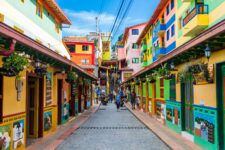In the ever-shifting landscape of global cannabis legislation, Brazil presents a unique case. The country’s approach to cannabis, influenced by cultural, legal, and health perspectives, mirrors the broader global debate on drug policy reform. While Brazil has not fully embraced the wave of legalization seen in some regions, it has taken significant steps towards decriminalizing and regulating cannabis, particularly for medical use.
Key Takeaways
- Recreational cannabis is illegal in Brazil, but possession and cultivation for personal use have been decriminalized since 2006.
- Medical cannabis is legal under strict regulations, with products available through prescription for specific medical conditions.
- Cultivation for industrial or medical purposes remains prohibited, but recent legal developments suggest potential changes.
Historical Overview of Cannabis Regulation in Brazil
Cannabis was introduced to Brazil during the early 19th century, primarily for hemp production. However, its psychoactive properties, known to Africans enslaved by Portuguese colonizers, led to its recreational use and subsequent prohibition in 1830 in Rio de Janeiro. This marked the beginning of Brazil’s complex relationship with cannabis.
Over the centuries, Brazil’s cannabis laws have been shaped by various social, cultural, and political influences. The 20th century saw a global trend towards stricter drug laws, and Brazil aligned with this, implementing stringent anti-cannabis regulations. However, the 21st century brought a shift in perspective.
In 2006, Brazil decriminalized the possession and cultivation of cannabis for personal use, a significant step away from its historically punitive approach. This change reflected a growing recognition of the need for drug policy reform, influenced by international trends and domestic debates over public health and human rights. Despite these changes, the sale and trafficking of cannabis remain illegal and are subject to severe penalties. Brazil’s journey with cannabis regulation illustrates the complex interplay between historical context, cultural attitudes, and evolving legal frameworks.
Medical Cannabis in Brazil: Legal Provisions and Accessibility
Brazil’s stance on medical cannabis has evolved significantly in recent years. In 2015, the Brazilian Health Regulatory Agency (ANVISA) approved the use of cannabis-based medications for patients with terminal illnesses or those who have exhausted conventional treatment options. This marked a pivotal shift in the country’s drug policy, acknowledging the therapeutic potential of cannabis.
Regulations were further relaxed in 2019, allowing the domestic manufacture and sale of cannabis-based medicines, subject to stringent quality control and licensing by ANVISA. These medicines, including those with more than 0.2% THC, are now available in pharmacies, but only to patients holding a valid medical prescription.
Despite these advancements, the cultivation of cannabis for medical purposes remains illegal. However, recent legal developments, including a bill proposing the commercialization of cannabis-based medicines, suggest a potential shift in policy. This bill, if passed, could authorize the cultivation of cannabis for medical purposes, a significant step towards expanding access to medical cannabis in Brazil.
The evolution of medical cannabis laws in Brazil reflects a growing recognition of its medical benefits, balanced with cautious regulation to ensure safety and control.
Current Legal Status of Recreational Marijuana in Brazil
The legal status of recreational marijuana in Brazil is clear: it is illegal. However, the country’s approach to personal use is more nuanced.
In 2006, Brazil decriminalized the possession and cultivation of small amounts of cannabis for personal use. This landmark decision shifted the focus from criminal punishment to a more health-oriented approach.
Individuals found with small quantities of cannabis are not subject to criminal prosecution. Still, they may face administrative sanctions such as warnings, community service, or mandatory participation in educational programs about drug abuse.
Despite this decriminalization, the sale, distribution, and large-scale cultivation of cannabis remain criminal offenses, punishable by imprisonment and fines. The distinction between personal use and trafficking is often subjective, leading to inconsistent enforcement and legal ambiguity. This ambiguity reflects Brazil’s broader challenges in balancing public health concerns, individual rights, and drug control. While the decriminalization of personal use represents progress in drug policy reform, the ongoing criminalization of other cannabis-related activities underscores the complexity of fully legalizing recreational marijuana in Brazil.
Possession, Cultivation, and Consumption: What’s Allowed in Brazil?
In Brazil, the laws surrounding the possession, cultivation, and consumption of cannabis are defined by a delicate balance between decriminalization and prohibition. Since 2006, individuals found possessing or cultivating small amounts of cannabis for personal use are not criminally prosecuted but may face non-criminal penalties. However, the law does not specify quantity limits for personal use, leaving this determination to law enforcement discretion. This ambiguity can lead to varied interpretations and enforcement, potentially resulting in unequal treatment of individuals.
For medical purposes, cannabis can be prescribed, but patients must adhere to strict regulations and obtain products through legal channels, such as pharmacies. The cultivation of cannabis for medical or industrial purposes remains illegal, although there is ongoing legislative discussion that could change this policy.
What Future for Cannabis Legislation in Brazil?
The future of cannabis legislation in Brazil is poised at a crossroads, reflecting global trends and internal socio-political dynamics. Recent years have seen a gradual shift towards more liberal policies, especially in the realm of medical cannabis. Legislative discussions are underway that could potentially legalize the cultivation of cannabis for medical purposes, signaling a more progressive approach. However, the path to full legalization of recreational cannabis appears more complex and distant. As Brazil continues to grapple with the implications of cannabis legalization, it is likely that any future changes will be incremental, reflecting a careful balance between public health, safety, and individual freedoms.
To Sum Up
Is Marijuana legal in Brazil? The answer is nuanced. Recreational marijuana remains illegal, with decriminalized provisions for personal use. Medical cannabis is legal under strict regulations and accessible only through prescription for specific medical conditions. The cultivation of cannabis, whether for medical or recreational purposes, is currently prohibited. However, legislative developments suggest a potential shift towards more liberal policies, particularly in medical cannabis.
As the global and national discourse on cannabis continues to evolve, Brazil’s laws may undergo further changes, reflecting new societal and scientific understandings of cannabis. For those interested in this topic, staying informed on these developments is crucial.









